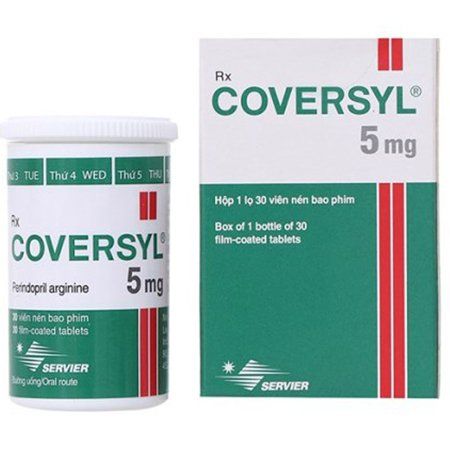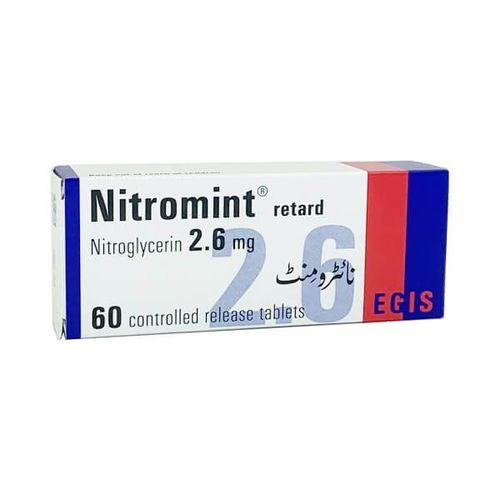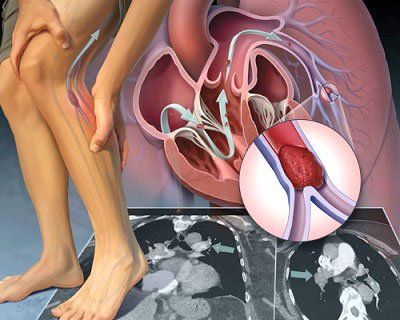This is an automatically translated article.
Arteries are vessels that carry oxygen-rich blood throughout the body. They carry blood to the brain as well as the tips of the toes. Healthy arteries have smooth inner walls and blood flows through them easily. However, some people may experience blocked arteries. This is caused by a buildup of plaque on the inner wall of an artery. Arterial plaque can reduce blood flow or in some cases can completely block it.
1. What causes arterial plaque?
Plaque that builds up on the inner walls of arteries is made of various substances circulating in the blood. These include calcium, fat, cholesterol, cellular waste, and fibrin, a substance involved in blood clotting. In response to plaque buildup, cells in the artery walls multiply and secrete additional substances that can worsen clogged arteries.
As plaques grow, a condition known as atherosclerosis occurs. This condition causes the arteries to narrow and harden. Although experts don't know for sure what causes arteries to begin to harden, the process seems to stem from damage to the lining of the artery walls. This damage leads to the deposition of plaque, which can be due to causes such as: high 'bad' cholesterol and low 'good' cholesterol. High levels of ''bad'' cholesterol, or low-density lipoprotein (LDL) are major contributors to arterial plaque formation. But that doesn't tell the whole story. Everyone has "good" cholesterol or high-density lipoprotein (HDL) circulating in the blood. HDL is thought to remove some of the bad cholesterol from plaque in clogged arteries and transport it back to the liver, where it is removed. High blood pressure: High blood pressure speeds up the formation of arterial plaque. It also accelerates the hardening of clogged arteries. Tobacco smoke: Cigarette smoke seems to increase the rate of atherosclerosis in the arteries of the heart, legs, and aorta, the largest artery in the body. Diabetes, or elevated circulating blood sugar, is also a major culprit in clogged arteries. Even people with high sugar levels not yet reaching the point of diabetes, such as those in metabolic syndrome, have a higher risk of plaque formation. Other risk factors include family history, stress, sedentary lifestyle, and obesity. Plaque usually begins to develop during childhood or adolescence. Then, clogged arteries develop in middle age or later.
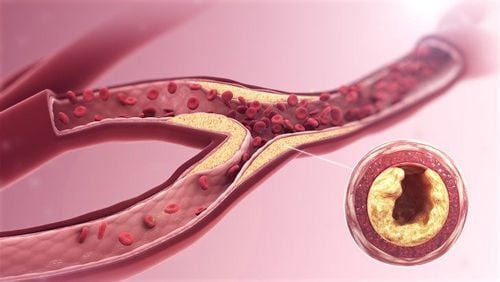
Mảng bám tích tụ trên thành trong của động mạch được tạo ra từ các chất khác nhau lưu thông trong máu
2. What are the dangers of arterial plaque and clogged arteries?
The harmful effects of arterial plaque and arterial blockage depend on where the arterial plaque accumulates. Clogged arteries in different parts of the body can lead to many conditions, including:
Coronary artery disease: When plaque builds up in the arteries that carry blood to the heart it leads to vascular disease. coronary or heart disease. Coronary artery disease can cause chest pain or shortness of breath. This condition can lead to heart attacks and is the leading cause of death in the United States. Carotid artery disease: The carotid arteries run up the sides of your neck. They provide oxygen to the brain. The accumulation of atherosclerotic plaques in the carotid arteries can lead to stroke. Peripheral artery disease: If plaque builds up in the blood vessels that carry blood to the legs it can reduce the amount of oxygen delivered. Reduced blood flow can cause severe pain, numbness, or infection in your legs and feet.
3. Do blocked arteries cause any symptoms?
In many cases, blocked arteries do not cause any symptoms until a major event such as a heart attack or stroke occurs.
At other times, especially when an artery is 70% or more blocked, the buildup of arterial plaque can cause symptoms including:
Chest tightness; Shortness of breath; heart palpitations; Weakness or dizziness; Nausea; Sweat. The first symptom is chest pain, also known as angina. It may be due to decreased blood flow to the heart. Reduced blood flow is caused by plaque in the arteries leading to the heart.
Clogged arteries in carotid artery disease can cause a history of strokes known as transient ischemic attacks, or TIAs. TIAs can produce the following symptoms:
Feeling of weakness or numbness on one side of the body; Inability to move arms or legs; Loss of vision only on one side; Blabbing. Blocked arteries in peripheral artery disease can cause:
Leg pain; Slow healing of foot wounds; cold feet; Caseation.
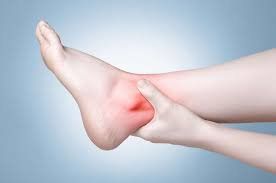
Động mạch bị tắc nghẽn trong bệnh động mạch ngoại vi có thể gây ra đau chân
4. What are the tests for blocked arteries?
Currently, there are several tests for blocked arteries. Your doctor will determine what type of test to prescribe based on your symptoms and medical history. Tests may include:
Check cholesterol; chest x-ray; CT scan; Supersonic ; Echocardiogram or cardiac stress test; ECG ; MRI or PET scan; Angiogram.
5. How are clogged arteries or arterial plaque treated?
There are many prevention and treatment options for clogged arteries. What your doctor prescribes to reduce arterial plaque and prevent clogged arteries will depend on the severity of the condition and medical history. The doctor may apply one or more of the following methods:
5.1. Lifestyle change. A healthy lifestyle is essential to control arterial plaque and treat clogged arteries, this includes:
Practicing a diet low in saturated fat and cholesterol, low in sugar, low in carbohydrates menu, many fruits and vegetables; Maintain a healthy body weight; No smoking; Exercise regularly; Manage stress levels; Reduce blood pressure and cholesterol; Maintain low blood sugar. 5.2. Surgical or interventional procedures. In some cases, surgery may be needed to treat clogged arteries and prevent further buildup of arterial plaque. These procedures may include:
Stenting: The doctor will use a small tube called a stent that can contain medicine to be placed in an artery to maintain adequate blood flow. A catheter is used through an artery of the leg to reach the heart, and a stent is placed through the catheter into the area of blockage. Surgery: In this operation, arteries from other parts of the body are moved to bypass blocked arteries and help oxygen-rich blood reach its destination. Balloon angioplasty: This procedure opens blocked arteries that are partially or completely blocked by opening the blockage with a device that pushes plaque against the side wall of the artery. 5.3. Medications Certain medications can help control some of the factors that contribute to arterial plaque buildup. Includes:
Cholesterol-lowering drugs; Antihypertensive drugs; Aspirin and other blood-thinning medications to reduce the chance of dangerous blood clots forming. Clogged arteries greatly increase your chances of having a heart attack, stroke, or even death. Because of these dangers, no matter how old you are, you need to be aware of the causes of arterial plaque and have treatment strategies to prevent serious consequences. Currently, Cardiovascular Center - Vinmec International General Hospital is one of the leading centers in the country for examination, diagnosis, screening and treatment of cardiovascular diseases. With the convergence of a team of experienced, reputable experts in the field of surgery, internal medicine, interventional cardiac catheterization and the application of advanced techniques in the diagnosis and treatment of diseases. Cardiovascular management, along with a system of modern equipment, on par with the most prestigious hospitals in the world such as: 3 Tesla MRI machine (Siemens), 640 CT machine (Toshiba), other equipment EVIS EXERA III advanced endoscope (Japan Olympiad), Avace high-end anesthesia system, Hybrid operating room according to international standards... The Cardiovascular Center at Vinmec International General Hospital has achieved many successes. work and gain the trust of a large number of patients.
Please dial HOTLINE for more information or register for an appointment HERE. Download MyVinmec app to make appointments faster and to manage your bookings easily.
Reference source: webmd.com



